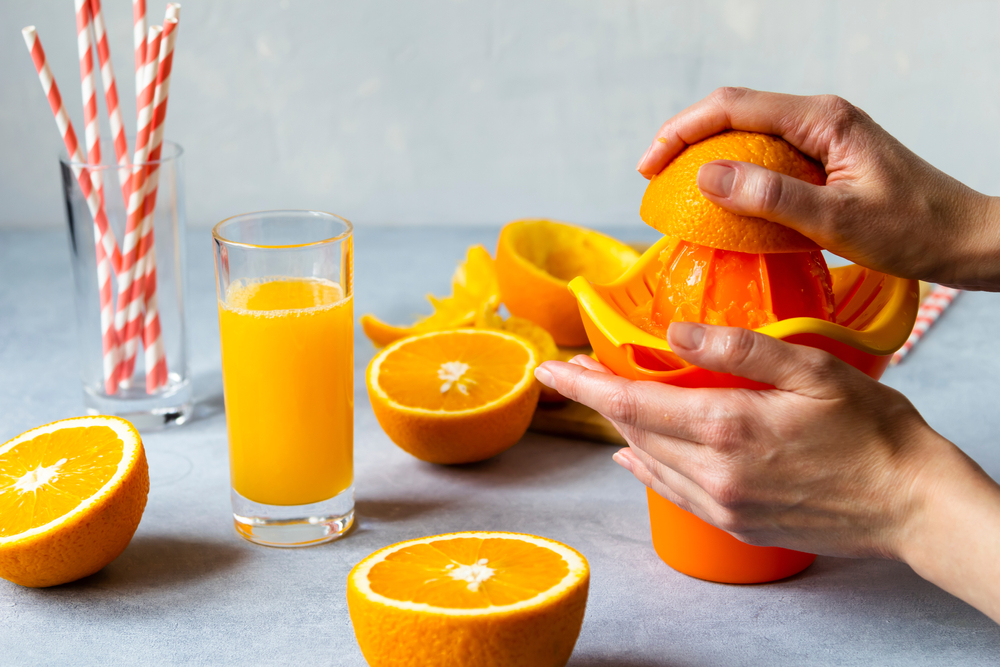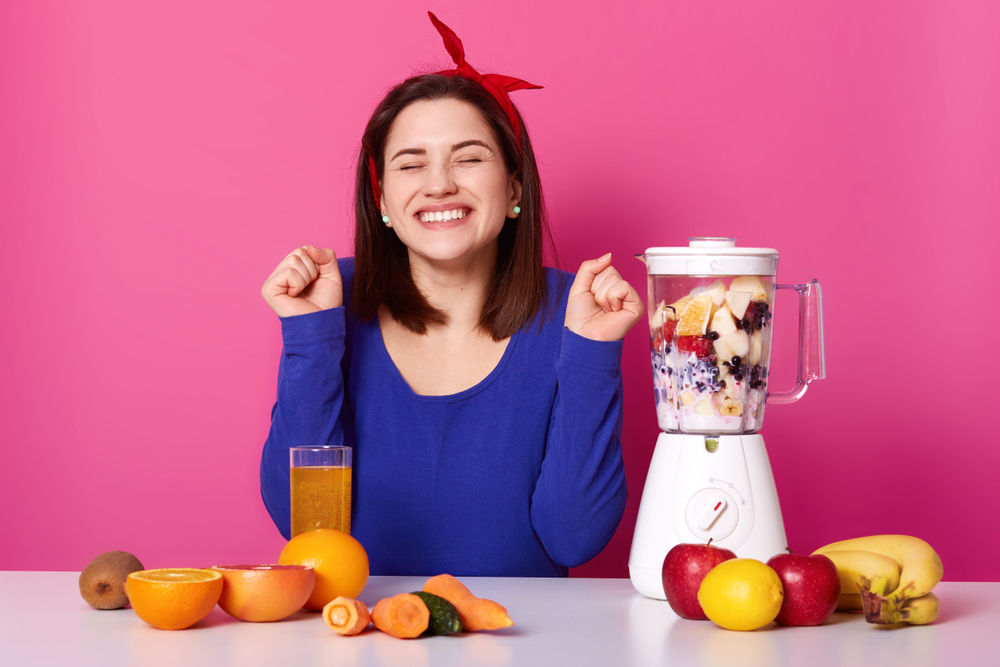Main Snow in Turkey, Check out Winter Outfit Risty Tagor
Are you planning a winter vacation? Risty's outfit might be an inspiration for mix and match.

Dream - One easy solution for those who don't like vegetables and fruits is to drink juice or smoothies. Both can make vegetables and fruits taste fresher and more delicious. The texture is slightly different and more practical to consume.
It is important to know that juice and smoothies are processed differently. Juice has a more liquid texture, while smoothies are more coarse.
According to Nutritionist Rachel Olsen, juice only extracts nutrients and water from fruits and vegetables. When making juice, the skin, seeds, and pulp of vegetables and fruits are discarded.

Photo: Shutterstock
However, these three things are good sources of fiber for the body. The loss of some fiber sources in juice makes it less filling.
On the other hand, smoothies can be used as a substitute for breakfast because they contain fiber. In addition, smoothies can also help regulate blood sugar and improve gut microbiota health.

Photo: Shutterstock
According to Rachel, it is better to consume smoothies to meet the body's nutritional and fiber needs. But if you want to absorb all the benefits of fruits and vegetables, both are best consumed in their whole form.
View this post on Instagram
Dream - Consuming fruit and vegetable juice is an easy way to supplement many nutrients without having to eat them whole. Many also claim that regularly drinking juice can help with weight loss.
On social media, the popularity of juice as a weight loss tool is often seen. However, experts are still debating its effectiveness.

Quoting from prevention.com, Dream summarizes several things you need to know about the benefits of consuming juice and its effects on weight loss?
Unlike making traditional juice with a blender, juicing is the process of extracting water from fruits and vegetables to make a drink. As a result, this process leaves the fiber in the juicer machine.
According to Dr. BreAnna Guan, a licensed naturopathic doctor specializing in women's hormone health, juice can be used as a supplement to improve nutritional status or as part of juicing fasting practice.
Unfortunately, by using this technique, the fiber content of fruits and vegetables will be filtered out despite the many benefits it produces, such as lowering cholesterol, improving heart health, regulating blood sugar, and helping to feed gut microbes.
There are two factors that make it difficult for people to efficiently lose weight. First, consuming additional calories, and second, inadequate nutrition to support the body's metabolism.
These two factors make juice beneficial for weight loss because it can replace or add high-calorie foods consumed daily. The nutrients from vegetables and fruits also provide energy and make you feel full.
However, be cautious when consuming juice for the purpose of weight loss. Replacing all or most high-quality foods with a strict juice diet can create a calorie deficit that can actually hinder weight loss.
Dr. Kien Vuu, MD, your host doctor and assistant professor of health sciences at UCLA, revealed that he is not optimistic that juice can lead to weight loss. He believes that this form of calorie restriction generally slows down metabolism and is not a viable long-term option because it can actually lead to weight gain afterwards.
In addition, making juice using high-glycemic fruits and vegetables such as beets, carrots, and apples can increase blood sugar levels, making it difficult to break down fat and contributing to muscle loss.

Consuming juiced fruits and vegetables can be beneficial for overall health, as long as it is not used as a substitute for main meals. Consuming juiced fruits and vegetables to replace meals can cause extreme calorie deficits. Meanwhile, supplementing meals with juice, for example, at breakfast, can be an easy way to obtain the benefits of quality nutrition from fresh fruits and vegetables.
Juicing is best intended to complement existing health routines, not replace eating patterns. In addition, consuming fruits and vegetables in their whole form is better because they have benefits that juice does not have.
Cobain For You Page (FYP) Yang kamu suka ada di sini,
lihat isinya
Are you planning a winter vacation? Risty's outfit might be an inspiration for mix and match.
When carrying Baby Djiwa, Dimas Anggara's wife wore a bright-colored mini dress.
Here are easy and practical steps to shop with COD payment method.
These jeans look unique with a touch of logo design that fills the entire cutbray pants.
Samsung claims that the Galaxy A14 5G will last up to 2 days with its 5,000mAh battery.
To maintain and prevent diseases.
Boost self-confidence by doing 3 things regularly.
The hormonal changes experienced during menstruation can also cause digestive system disturbances in the body.
As a designer, Vivi certainly inspires many hijabers to wear stylish and attractive hijab outfits.
Midnight blue in color, the velvet dress that wraps around the 28-year-old woman's body is a design by Tunisian designer, Ali Karoui.
This gold necklace looks unique because of its unusual shape, if you look closely, this necklace looks like gold pins connected to each other.
Various sambal dishes are very tempting when full of savory oil.